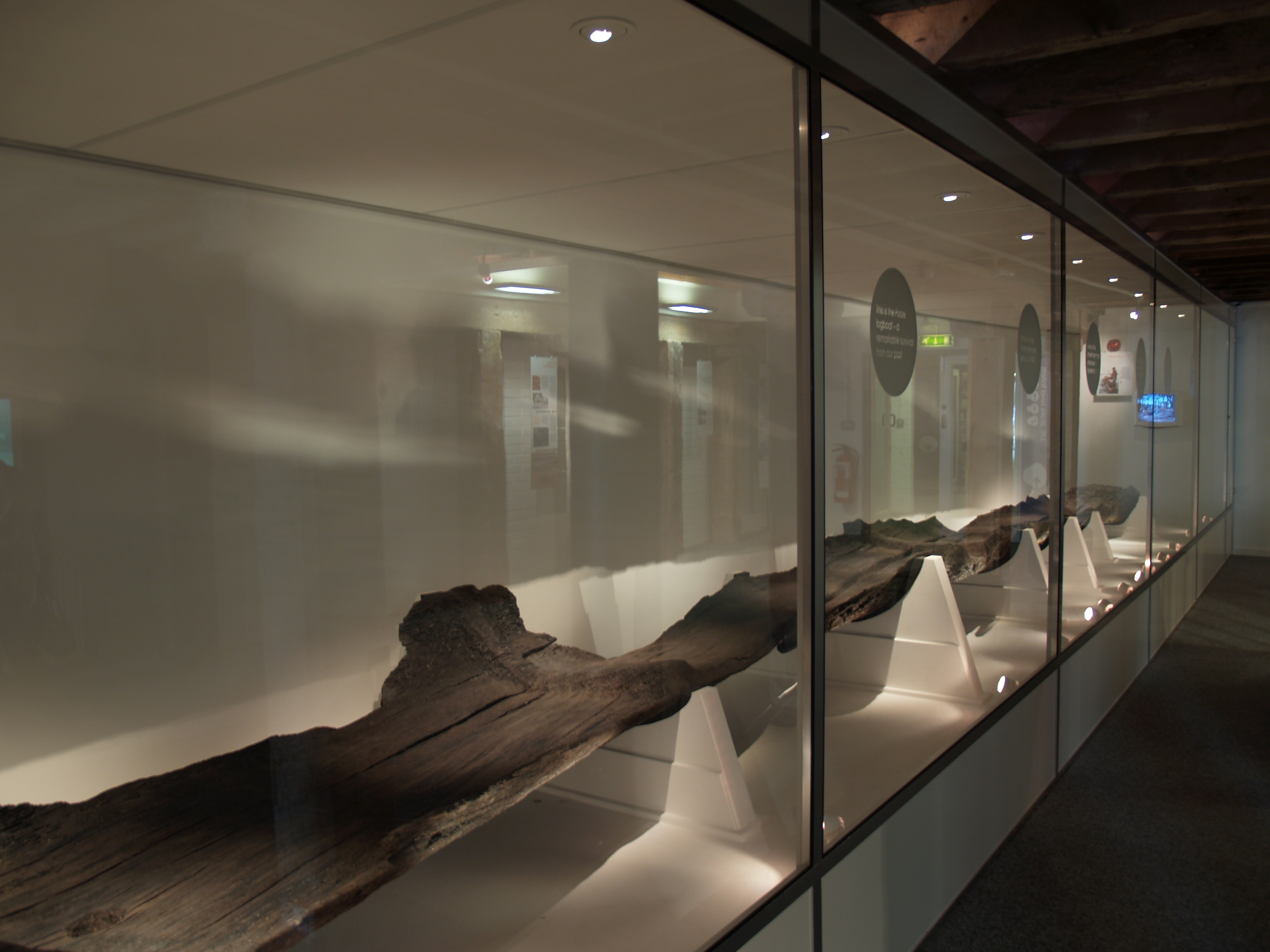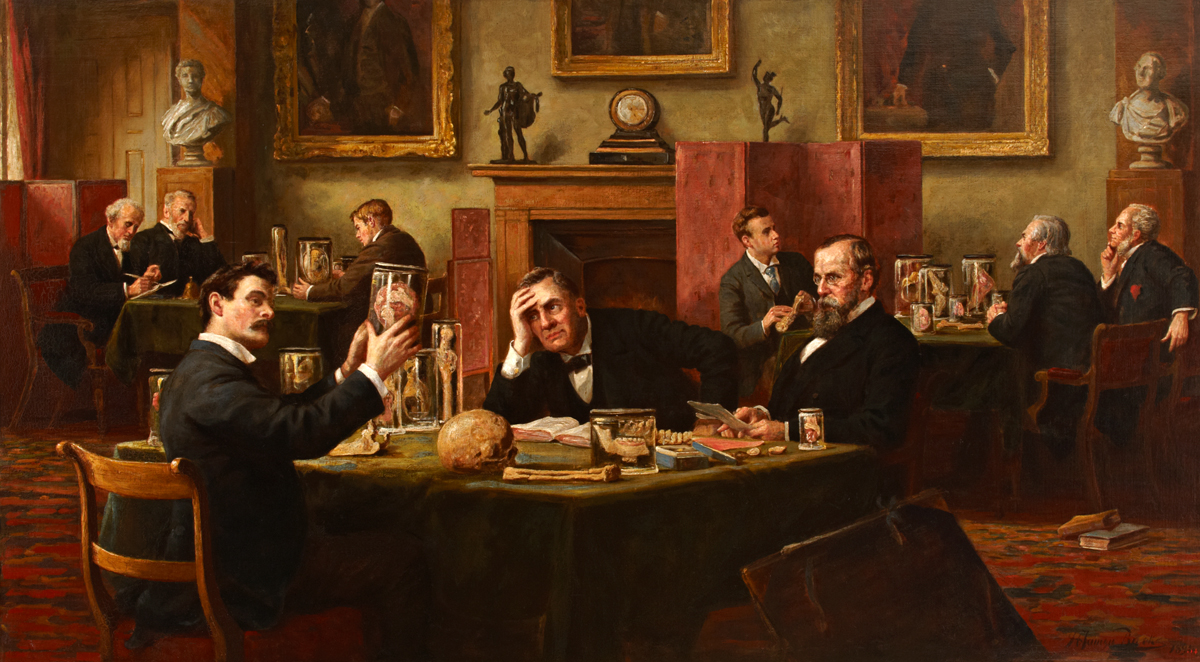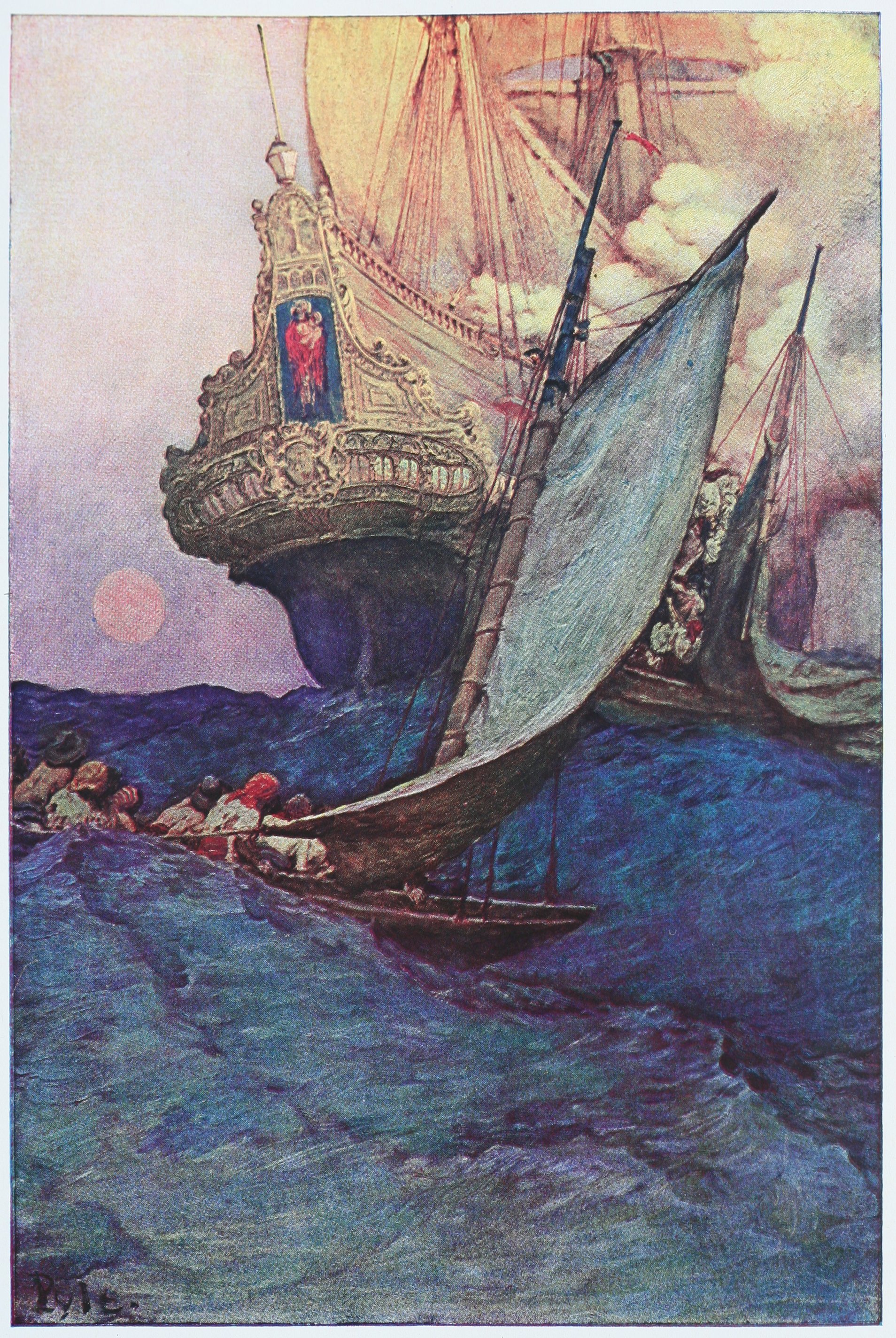|
Thomas Bell (zoologist)
Thomas Hornsey Bell FRS FLS (11 October 1792 – 13 March 1880) was an English zoologist, dental surgeon and writer, born in Poole, Dorset, England. Career Bell, like his mother Susan, took a keen interest in natural history which his mother also encouraged in his younger cousin Philip Henry Gosse. Bell left Poole in 1813 for his training as a dental surgeon in London. He is listed in 1817 as having an address at number 17 Fenchurch Street, and as being a committee member of the newly formed London Peace Society. By 1819 his address is given as 18 Bucklersbury, also in the city of London. He combined two careers, becoming Professor of Zoology at King's College London in 1836 (on the strength of amateur research) and lecturing on anatomy at Guy's Hospital. He became a fellow of the Royal College of Surgeons in 1844. He was President of the Linnean Society in 1858. Bell was at the heart of the scientific establishment and when Charles Darwin returned to London from the ''Be ... [...More Info...] [...Related Items...] OR: [Wikipedia] [Google] [Baidu] |
Poole
Poole () is a large coastal town and seaport in Dorset, on the south coast of England. The town is east of Dorchester and adjoins Bournemouth to the east. Since 1 April 2019, the local authority is Bournemouth, Christchurch and Poole Council which is a unitary authority. Poole had an estimated population of 151,500 (mid-2016 census estimates) making it the second-largest town in the ceremonial county of Dorset. Together with Bournemouth and Christchurch, the conurbation has a total population of nearly 400,000. Human settlement in the area dates back to before the Iron Age. The earliest recorded use of the town's name was in the 12th century when the town began to emerge as an important port, prospering with the introduction of the wool trade. Later, the town had important trade links with North America and, at its peak during the 18th century, it was one of the busiest ports in Britain. In the Second World War, Poole was one of the main departing points for the Normandy ... [...More Info...] [...Related Items...] OR: [Wikipedia] [Google] [Baidu] |
Royal College Of Surgeons Of England
The Royal College of Surgeons of England (RCS England) is an independent professional body and registered charity that promotes and advances standards of surgical care for patients, and regulates surgery and dentistry in England and Wales. The College is located at Lincoln's Inn Fields in London. It publishes multiple medical journals including the '' Annals of the Royal College of Surgeons of England'', the ''Faculty Dental Journal'', and the ''Bulletin of the Royal College of Surgeons of England''. History The origins of the college date to the fourteenth century with the foundation of the "Guild of Surgeons Within the City of London". Certain sources date this as occurring in 1368. There was ongoing dispute between the surgeons and barber surgeons until an agreement was signed between them in 1493, giving the fellowship of surgeons the power of incorporation. This union was formalised further in 1540 by Henry VIII between the Worshipful Company of Barbers (incorporat ... [...More Info...] [...Related Items...] OR: [Wikipedia] [Google] [Baidu] |
Gilbert White
Gilbert White FRS (18 July 1720 – 26 June 1793) was a " parson-naturalist", a pioneering English naturalist, ecologist, and ornithologist. He is best known for his ''Natural History and Antiquities of Selborne''. Life White was born on 18 July 1720 in his grandfather's vicarage at Selborne in Hampshire. His grandfather, also Gilbert White was at that time vicar of Selborne. Gilbert White's parents were John White (1688–1758) a trained barrister and Anne Holt (d. 1740). Gilbert was the eldest of eight surviving siblings, Thomas (b. 1724), Benjamin (b. 1725), Rebecca (b. 1726), John (b. 1727), Francis (b. 1728/29), Anne (b. 1731), and Henry (b. 1733). Gilbert's family lived briefly at Compton, Surrey, before moving into 'The Wakes' in 1728, that was to be his home for the rest of his long life. Gilbert White was educated in Basingstoke by Thomas Warton, father of Joseph Warton and Thomas Warton, who would have been Gilbert's school fellows. There are also suggestion ... [...More Info...] [...Related Items...] OR: [Wikipedia] [Google] [Baidu] |
Gilbert White's House, Back View
Gilbert may refer to: People and fictional characters * Gilbert (given name), including a list of people and fictional characters *Gilbert (surname), including a list of people Places Australia * Gilbert River (Queensland) * Gilbert River (South Australia) Kiribati * Gilbert Islands, a chain of atolls and islands in the Pacific Ocean United States * Gilbert, Arizona, a town * Gilbert, Arkansas, a town * Gilbert, Florida, the airport of Winterhaven * Gilbert, Iowa, a city * Gilbert, Louisiana, a village * Gilbert, Michigan, and unincorporated community * Gilbert, Minnesota, a city * Gilbert, Nevada, ghost town * Gilbert, Ohio, an unincorporated community * Gilbert, Pennsylvania, an unincorporated community * Gilbert, South Carolina, a town * Gilbert, West Virginia, a town * Gilbert, Wisconsin, an unincorporated community * Mount Gilbert (other), various mountains * Gilbert River (Oregon) Outer space * Gilbert (lunar crater) * Gilbert (Martian crater) Arts ... [...More Info...] [...Related Items...] OR: [Wikipedia] [Google] [Baidu] |
On The Tendency Of Species To Form Varieties; And On The Perpetuation Of Varieties And Species By Natural Means Of Selection
"On the Tendency of Species to form Varieties; and on the Perpetuation of Varieties and Species by Natural Means of Selection" is the title of a journal article, comprising and resulting from the joint presentation of two scientific papers to the Linnean Society of London on 1 July 1858: ''On The Tendency of Varieties to Depart Indefinitely from the Original Type'' by Alfred Russel Wallace and an ''Extract from an unpublished Work on Species'' from Charles Darwin's ''Essay'' of 1844. The article also includes an ''Abstract of a Letter'' from Darwin to Asa Gray, and an introductory letter by Joseph Dalton Hooker and Charles Lyell. The article was the first announcement of the Darwin–Wallace theory of evolution by natural selection; and appeared in print on 20 August 1858. The presentation of the papers spurred Darwin to write a condensed "abstract" of his "big book" on ''Natural Selection''. This was published in November 1859 as ''On the Origin of Species''. Events leading up t ... [...More Info...] [...Related Items...] OR: [Wikipedia] [Google] [Baidu] |
Alfred Russel Wallace
Alfred Russel Wallace (8 January 1823 – 7 November 1913) was a British natural history, naturalist, explorer, geographer, anthropologist, biologist and illustrator. He is best known for independently conceiving the theory of evolution through natural selection. His 1858 paper on the subject was published that year On the Tendency of Species to form Varieties; and on the Perpetuation of Varieties and Species by Natural Means of Selection, alongside extracts from Charles Darwin's earlier writings on the topic. It spurred Darwin to set aside the Natural Selection (manuscript), "big species book" he was drafting, and quickly write an Abstract (summary), abstract of it, published in 1859 as ''On the Origin of Species''. Wallace did extensive fieldwork, first in the Amazon River basin. He then did fieldwork in the Malay Archipelago, where he identified the faunal divide now termed the Wallace Line, which separates the Indonesian archipelago into two distinct parts: a western port ... [...More Info...] [...Related Items...] OR: [Wikipedia] [Google] [Baidu] |
Linnean Society Of London
The Linnean Society of London is a learned society dedicated to the study and dissemination of information concerning natural history, evolution, and taxonomy. It possesses several important biological specimen, manuscript and literature collections, and publishes academic journals and books on plant and animal biology. The society also awards a number of prestigious medals and prizes. A product of the 18th-century enlightenment, the Society is the oldest extant biological society in the world and is historically important as the venue for the first public presentation of the theory of evolution by natural selection on 1 July 1858. The patron of the society was Queen Elizabeth II. Honorary members include: King Charles III of Great Britain, Emeritus Emperor Akihito of Japan, King Carl XVI Gustaf of Sweden (both of latter have active interests in natural history), and the eminent naturalist and broadcaster Sir David Attenborough. History Founding The Linnean Society ... [...More Info...] [...Related Items...] OR: [Wikipedia] [Google] [Baidu] |
Zoology Of The Voyage Of H
Zoology ()The pronunciation of zoology as is usually regarded as nonstandard, though it is not uncommon. is the branch of biology that studies the animal kingdom, including the structure, embryology, evolution, classification, habits, and distribution of all animals, both living and extinct, and how they interact with their ecosystems. The term is derived from Ancient Greek , ('animal'), and , ('knowledge', 'study'). Although humans have always been interested in the natural history of the animals they saw around them, and made use of this knowledge to domesticate certain species, the formal study of zoology can be said to have originated with Aristotle. He viewed animals as living organisms, studied their structure and development, and considered their adaptations to their surroundings and the function of their parts. The Greek physician Galen studied human anatomy and was one of the greatest surgeons of the ancient world, but after the fall of the Western Roman Empire a ... [...More Info...] [...Related Items...] OR: [Wikipedia] [Google] [Baidu] |
Buccaneer
Buccaneers were a kind of privateers or free sailors particular to the Caribbean Sea during the 17th and 18th centuries. First established on northern Hispaniola as early as 1625, their heyday was from the Restoration in 1660 until about 1688, during a time when governments were not strong enough and did not consistently attempt to suppress them. Originally the name applied to the landless hunters of wild boars and cattle in the largely uninhabited areas of Tortuga and Hispaniola. The meat they caught was smoked over a slow fire in little huts the French called ''boucans'' to make ''viande boucanée'' – ''jerked meat'' or ''jerky'' – which they sold to the corsairs who preyed on the (largely Spanish) shipping and settlements of the Caribbean. Eventually the term was applied to the corsairs and (later) privateers themselves, also known as the Brethren of the Coast. Though corsairs, also known as ''filibusters'' or ''freebooters'', were largely lawless, privateers were n ... [...More Info...] [...Related Items...] OR: [Wikipedia] [Google] [Baidu] |
Galápagos Tortoise
The Galápagos tortoise or Galápagos giant tortoise (''Chelonoidis niger'') is a species of very large tortoise in the genus ''Chelonoidis'' (which also contains three smaller species from mainland South America). It comprises 15 subspecies (13 extant and 2 extinct). It is the largest living species of tortoise, with some modern Galápagos tortoises weighing up to . With lifespans in the wild of over 100 years, it is one of the longest-lived vertebrates. Captive Galapagos tortoises can live up to 177 years. For example, a captive individual, Harriet, lived for at least 175 years. Spanish explorers, who discovered the islands in the 16th century, named them after the Spanish '' galápago'', meaning "tortoise". Galápagos tortoises are native to seven of the Galápagos Islands. Shell size and shape vary between subspecies and populations. On islands with humid highlands, the tortoises are larger, with domed shells and short necks; on islands with dry lowlands, the tort ... [...More Info...] [...Related Items...] OR: [Wikipedia] [Google] [Baidu] |
Natural Selection
Natural selection is the differential survival and reproduction of individuals due to differences in phenotype. It is a key mechanism of evolution, the change in the heritable traits characteristic of a population over generations. Charles Darwin popularised the term "natural selection", contrasting it with artificial selection, which in his view is intentional, whereas natural selection is not. Variation exists within all populations of organisms. This occurs partly because random mutations arise in the genome of an individual organism, and their offspring can inherit such mutations. Throughout the lives of the individuals, their genomes interact with their environments to cause variations in traits. The environment of a genome includes the molecular biology in the cell, other cells, other individuals, populations, species, as well as the abiotic environment. Because individuals with certain variants of the trait tend to survive and reproduce more than individuals ... [...More Info...] [...Related Items...] OR: [Wikipedia] [Google] [Baidu] |
Inception Of Darwin's Theory
The inception of Darwin's theory occurred during an intensively busy period which began when Charles Darwin returned from the survey voyage of the ''Beagle'', with his reputation as a fossil collector and geologist already established. He was given an allowance from his father to become a gentleman naturalist rather than a clergyman, and his first tasks were to find suitable experts to describe his collections, write out his '' Journal and Remarks'', and present papers on his findings to the Geological Society of London. At Darwin's geological début, the anatomist Richard Owen's reports on the fossils showed that extinct species were related to current species in the same locality, and the ornithologist John Gould showed that bird specimens from the Galápagos Islands were of distinct species related to places, not just varieties. These points convinced Darwin that transmutation of species must be occurring, and in his ''Red Notebook'' he jotted down his first evolutionary i ... [...More Info...] [...Related Items...] OR: [Wikipedia] [Google] [Baidu] |


.jpg)
.jpg)




